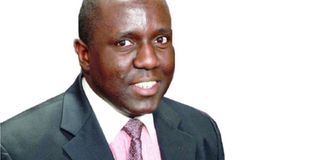Poll results: President confronts worst enemy

Author, Karoli Ssemogerere. PHOTO/FILE.
Aside from the 58.4 per cent presidential win certified by the Electoral Commission, there is a sense of unease and calm at the same time after a bitterly fought and perhaps a very close election, drawing parallels to 1980 and 2006. The conduct of the 1996 election, which even had more irregularities due to open distribution of voter’s cards and multiple voting, resembled some of the scenes in the later elections only that digital evidence emphasised that the possession of ballot papers, ticking of ballot papers happened under the nose of those whose constitutional mandate is to safeguard the election.
It may be that Uganda has reached a certain crossroads with few options. President Museveni himself concedes that it may be time to look at proportional representation that would assure him and his party an orderly transition. But there are other institutional disparities in the electoral system which limit, for example, the ability of Opposition parties to campaign for Youth, Workers, Elderly and PWD seats, which are dominated by electoral colleges. The economic situation also dictates how many Opposition candidates simply folded up or crossed to the ruling party ahead of polling day.
The elections have exposed a growing generational divide, and having been held on the back of a tough economic environment have pushed bread and butter politics back to the fore. The situation in certain voting regions was defined by factors some global, some local. The rapid softening of coffee prices since 2018 for example has turned a good government programme supporting farmers with planting material into a political Achilles heel. Last year yet another indigenous coffee exporter was forced to sell off to a foreign player, and an assembly of coffee exporters, for example, reveals local names with predominantly foreign ownership. This is the situation in the banking sector, somewhat less in the insurance sector, but banking by far dominates financial services.
In Busoga, a long feature on sugarcane reflected itself in the polls, farmers unable to sell sugarcane or even acquire interests in Kenyan factories, which do not have enough cane! The public is becoming suspicious of legislation, which has unintended consequences. Both the coffee and sugar laws attracted universal outcry, a situation complicated by factors outside the control of government. For example, Rwanda, Kenya and Tanzania have blocked Ugandan sugar exports. All major sugar millers have stockpiled a lot of sugar and the price per kg continues to drop, breaching a psychological floor of Shs3,000.
This is the same situation for milk, where Uganda produces 2 billion litres, but many farmers are barely breaking even. For coffee prices, FAQ has dropped almost 40 per cent since the last highs in 2018, and in just three months, FAQ dropped 10 per cent. This spells problems for farmers, their employees and families, as they produce more for less. On election night, the President conceded that the aggressive taxman had overreached into his base. Complaints about a good programme to prevent illegal fishing delivered mayhem at the polls on account of excessive use of force, vandalism (even where not true) in fishing communities. One of the landmarks government is proud of is the spreading of industries to all parts of the country from 80 in 1986 to 5,000 in 2020. On a proportional scale we must also appreciate that Uganda’s population has more than tripled since 1986, and better education opportunities mean we have a more restless workforce looking for work.
In 2020, Bank of Uganda advertised for 40 positions entry level banking officers and attracted applicants in the thousands. Some big employers have resorted to psychometric tests just to winnow the number of eligible applicants, even though this test would probably be a prohibited practice. It will also be another day to discuss the us against them discussion on who is getting which jobs in the public service. Lands State minister Persis Namuganza summed up the national mood in areas where the political winds swept saying these areas need special ministries. But how will this work.
Already, Karamoja, Bunyoro, Luweero Triangle, Northern Uganda have these and most of the ministers in these departments actually lost their campaigns for re-election. It will be fun in Parliament when it convenes with Parliament’s mufti Latif Sebaggala replaced with councillor Muhammad Segirinnya, who stated he was still practicing with his wife how to climb the steps of Parliament for the swearing in day.
Mr Ssemogerere is an Attorney-At-Law and an Advocate.




